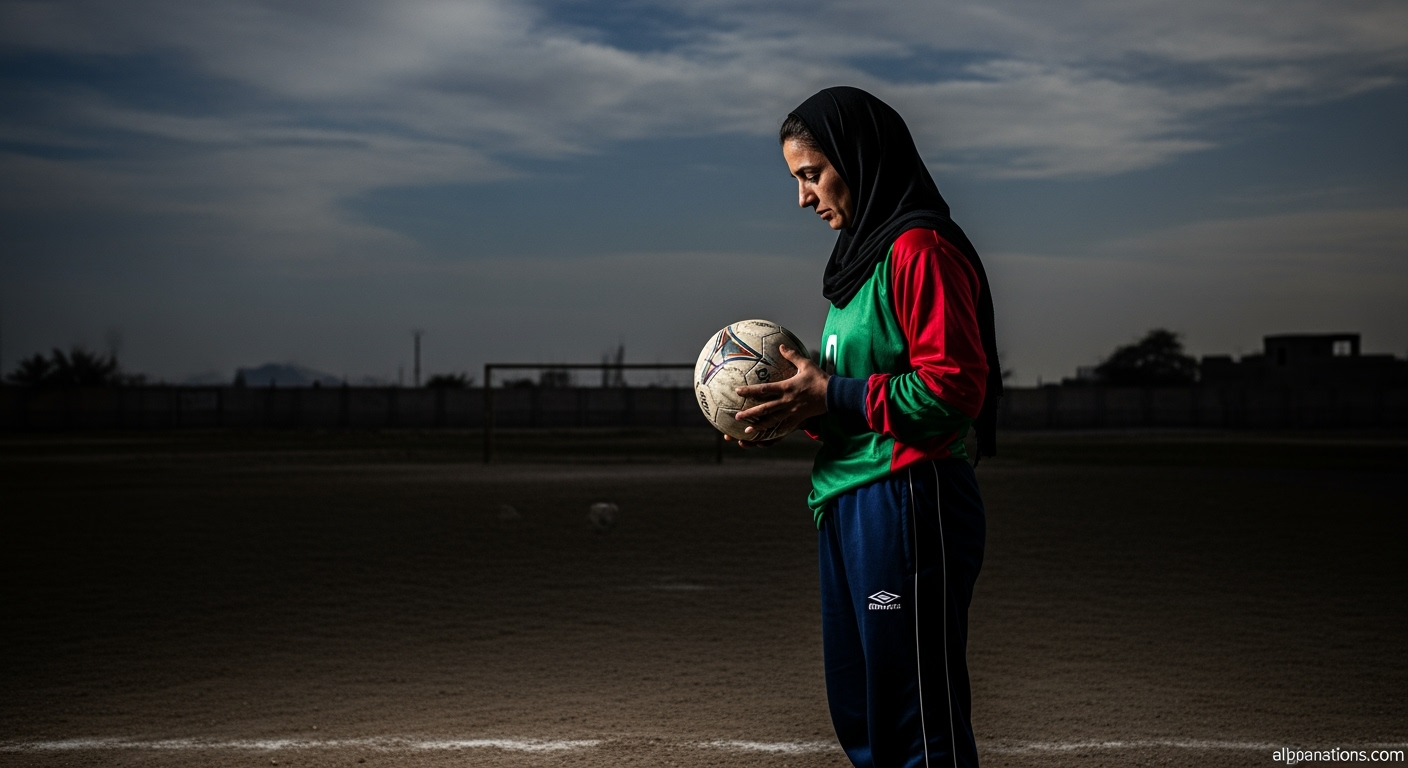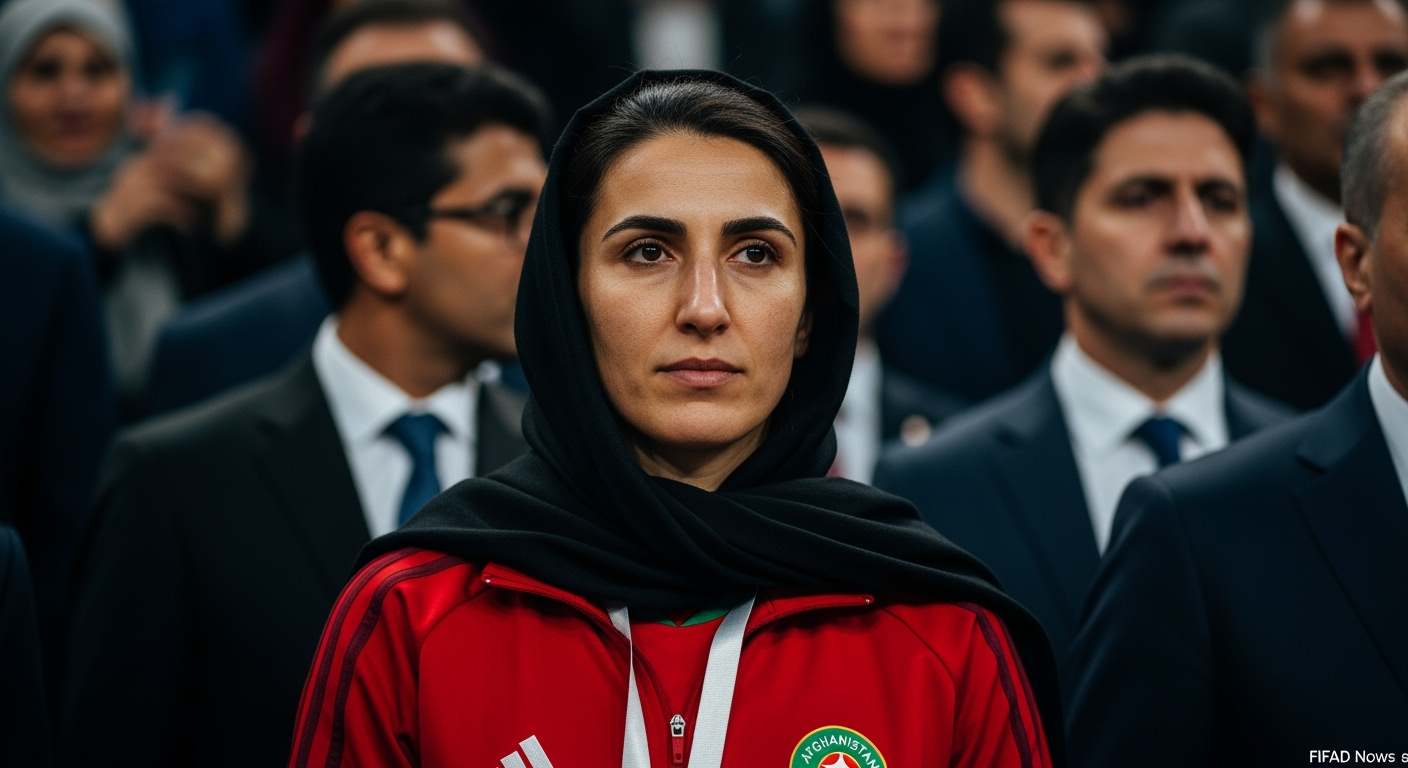Related Articles

The Silent Tear: Unpacking the Impact of Cruciate Ligament Ruptures




Dubai, UAE – Nearly four years after their world was upended by the Taliban's resurgence, the Afghanistan women's national football team is poised for a poignant return to the international stage. What began as a desperate flight for survival has evolved into a remarkable journey of resilience, culminating in the formation of a FIFA-backed Afghan Women's Refugee Team set to compete in their first official friendly matches later this month in Dubai. This long-awaited re-emergence represents a powerful statement against oppression, embodying the unwavering spirit of women determined to reclaim their right to play and to serve as a beacon of hope for countless others.
The team's path back to competitive football has been fraught with challenges, marked by displacement, a fight for recognition, and the persistent advocacy of players and supporters worldwide. While the initial focus on their "return" highlighted a symbolic connection with Morocco, it is in the vibrant football hub of Dubai that these athletes will kick off a new chapter, showcasing not only their talent but also their indomitable courage on a global platform.
The nightmare for Afghanistan's female athletes began in August 2021, when the Taliban swept back into power. Almost immediately, women's sports were banned across the country, effectively dismantling the progress made in gender equality in sports over the preceding two decades. For the women's national football team, this meant not just the loss of their careers, but a direct threat to their safety and freedom. Many players, now high-profile targets due to their visibility and defiance of strict interpretations of religious law, were forced to flee for their lives.
Former team captain Khalida Popal, already living in exile, spearheaded a monumental effort to evacuate players and their families. With the support of international organizations and governments, particularly Australia, dozens of female footballers found refuge in new lands. This mass exodus led to the team's official disappearance from FIFA's world rankings, as the Taliban-controlled Afghanistan Football Federation (AFF) refused to sanction women's teams. The dream of representing their nation on the pitch, once a source of immense pride, seemed to vanish overnight, replaced by the immediate concerns of resettlement and adapting to life as refugees.
Despite the trauma of displacement, the spirit of the Afghan women footballers remained unbroken. Scattered across various host countries, particularly Australia, many continued to train and play in local leagues, including a team participating in Football Victoria's state league as Melbourne Victory FC AWT. Beyond the pitch, they transformed into powerful advocates, leveraging their voices to draw international attention to the plight of women in Afghanistan and to press for their own formal recognition by FIFA.
A notable moment of this advocacy occurred in July 2023, when several exiled Afghan players, then based in Melbourne, Australia, attended a public training session of the Moroccan women's national team during the FIFA Women's World Cup. Morocco's debut as the first Arab nation to qualify for the tournament resonated deeply with the Afghan athletes, who saw it as a powerful affirmation of Muslim women's place in global football. Players observed that Morocco's success provided a compelling argument for greater inclusion and inspired their continued fight for a place on the international stage. This interaction, while not a return to play in Morocco, underscored their persistent hope and served as a symbolic moment of solidarity and advocacy in their long journey back to the sport's highest echelons.
The players, often expressing sentiments of being a voice for the women back home, repeatedly called on FIFA to grant them official status to compete internationally. They underscored that their participation was not merely about sport, but about mirroring the struggle for rights and freedom faced by women under the Taliban's rule.
After years of relentless lobbying and growing international pressure, FIFA, the world governing body of football, took a significant step in May 2025. It approved a pilot project to establish an Afghan Women's Refugee Team (AWRT). This decision, hailed by FIFA President Gianni Infantino as a "historic milestone," signaled a formal commitment to supporting the displaced athletes. The move allows the team to compete in FIFA-sanctioned friendly matches and tournaments, though it does not yet grant them the ability to participate in official competitive qualifiers for major events like the FIFA Women's World Cup, a critical distinction due to the ongoing issue of the Taliban-controlled AFF's non-recognition of women's football.
Following the announcement, a rigorous process commenced to build the new team. Talent identification camps were held, notably in Sydney, Australia, during July 2025, under the guidance of Scottish manager Pauline Hamill. These camps provided crucial support, including physical preparation, nutrition, psychological services, and safeguarding, mirroring the standards offered to top national teams. The initiative was part of a broader, three-pillar FIFA Strategy for Action for Afghan Women's Football, designed to provide comprehensive support for exiled players and explore avenues for those remaining in Afghanistan.
The culmination of these efforts arrived in October 2025 with the announcement of the inaugural 23-member Afghan Women's Refugee Team squad, comprising players residing in Australia, the United Kingdom, Portugal, and Italy. This diverse group, a mix of seasoned veterans and aspiring young talents, is set to make their official return to international football at the FIFA Unites: Women's Series in Dubai. From October 23-29, the AWRT will face the United Arab Emirates, Chad, and Libya in what marks their first international matches in four years.
Players involved have expressed profound sentiments regarding this opportunity. For many, it represents not just a chance to play the sport they love, but a deeply personal and political act. They describe it as a "new beginning," an opportunity to "rewrite their story," and a platform to proudly represent Afghanistan on the world stage. The upcoming tournament is seen as a powerful symbol, demonstrating that the ban on women's sports in their homeland will not silence their voices or extinguish their dreams.
While the Dubai tournament is a momentous occasion, it also highlights the continuing fight for full recognition. The Afghan Women's Refugee Team is currently supported by FIFA but does not officially represent Afghanistan in World Cup qualifying tournaments. The ultimate goal for these athletes and their advocates remains achieving full FIFA status, enabling them to compete in all international competitions under their national banner.
The journey of the Afghanistan women's national football team from displacement to this FIFA-backed return is a testament to extraordinary human resilience. It underscores the profound role sport can play in advocating for human rights and inspiring change, even in the face of profound adversity. As these players step onto the field in Dubai, they carry the hopes and dreams of millions, sending a clear message that the spirit of Afghan women, and their right to play, can never be truly suppressed. Their story is a powerful reminder that even after years in exile, the pursuit of freedom and self-expression can find its voice on the global stage.